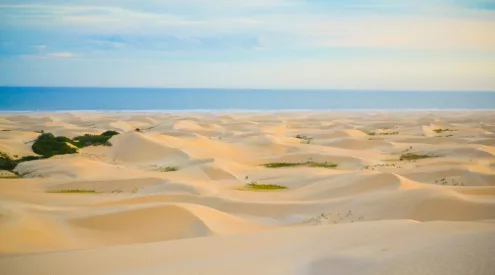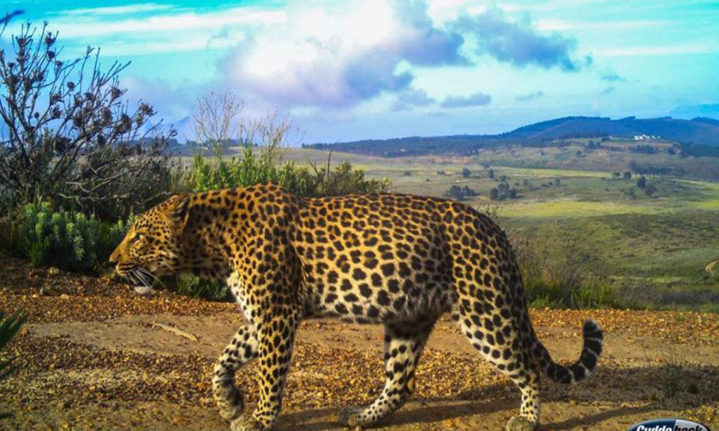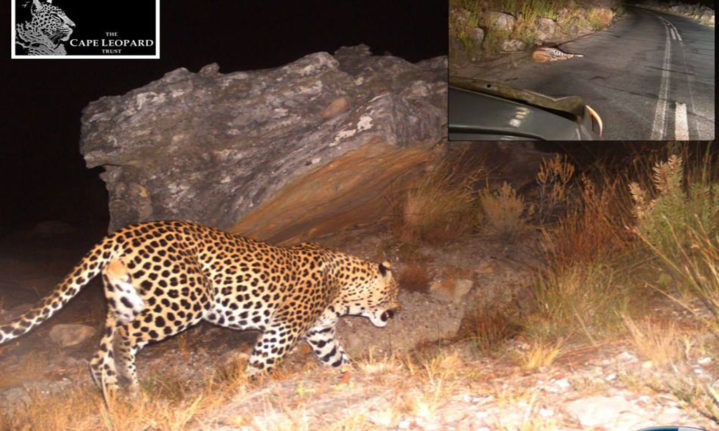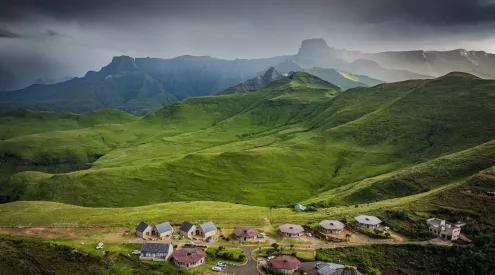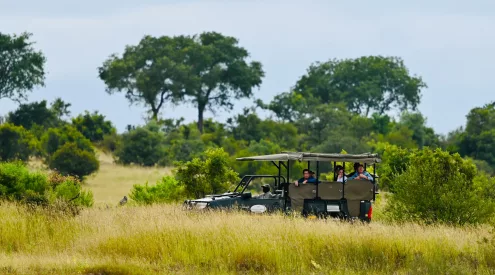A female Cape leopard died from injuries after she was hit by a car on Monday night on the N1 at around 7pm. The fatal accident took place between Worcester and De Doorns, on a section of the highway that passes through a mountain range between the towns.
The leopard sustained a head injury and ‘was incapacitated’, according to CapeNature. She was transported by a veterinarian’s assistant to the nearby Worcester Animal Clinic where she was examined by a veterinarian.
The leopard was a mature female and her body will be kept and used for research. CapeNature says it will oversee this process with other stakeholders, ensuring that there is a valid research permit and facility.
The Cape Leopard Trust, a non-governmental and non-profit organisation, which conducts research into Cape predator populations, does undertake research in the Cape mountains but is unable to confirm if the leopard is known to them. ‘We have not yet received ideal photos from which to identify the individual – the incident did take place fairly far outside the boundaries of our active research projects so it is unlikely that we would be able to identify her.’
The Trust says that to their knowledge there have been five Cape leopard deaths related to roads accidents in the last two years.
In 2017, an adult male Cape leopard was killed on the Bainskloof Pass road, while another adult male was killed on the N7 just outside of Clanwilliam two months later. In 2018, two leopards, a cub and an adult female, were killed a few days apart on Mitchell’s Pass. Three months later, another leopard was killed on the same pass.
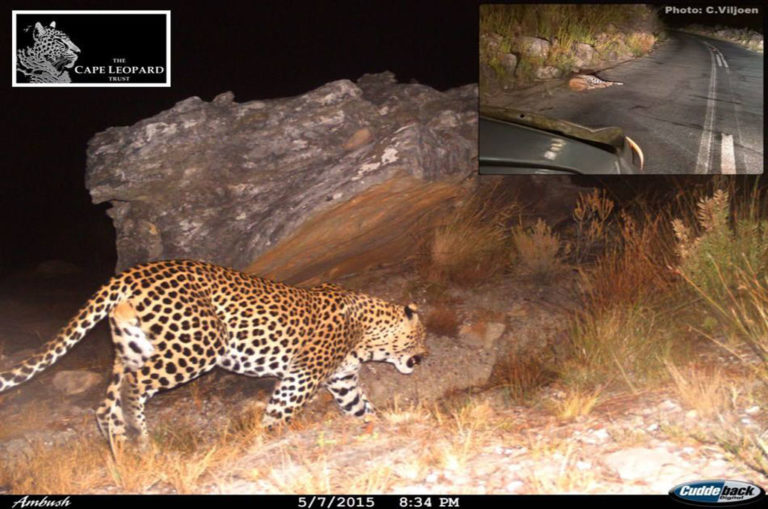
A camera-trap photo of the male leopard which died in 2017 after being hit by a car in Bainskloof Pass. The insert was taken soon after the incident by a passerby. Image: Cape Leopard Trust/Facebook.
In the aftermath, CapeNature has reminded motorists that wildlife does roam freely in the areas around some roads, especially mountain passes bordered by natural vegetation.
The organisation has appealed to motorists to be vigilant and pay attention to warning signs which indicate animal activity in the area.
It also thanked members of the public for swiftly contacting CapeNature about the incident.
According to Cape Leopard Trust there are less than 1,000 leopards roaming the mountains of the Western Cape. They are concentrated in the mountainous areas of the Cederberg, Karoo and Boland.
Anita Wilkinson, the Boland Project Co-ordinator for the Cape Leopard Trust, says that they are aware that mountain pass roads are the most dangerous roads for Cape leopards.
She says that a loss of a leopard, whether female or male, is a blow to the Cape leopard population.
The Cape leopard is smaller than those found in other parts of Africa. They also have much larger territories.
https://www.instagram.com/p/BwBjwegnVI5/
Leopards are considered worldwide to be a vulnerable species, however, the Cape leopard population is especially threatened because it is spread out, has large territories and limited suitable habitat.
Other than roads, snares are also a threat to the survival of Cape leopards. The snares are usually intended to capture small game for food, but are known to also ensnare leopards. Uncontrolled hunting also decreases their potential prey.
https://www.instagram.com/p/BRaz6qwBDJ5/
In addition, habitat loss because of expanding urban and farming areas is another threat. They are also often killed or hurt in retaliation to them hunting farmers’ livestock.
The Cape Leopard Trust is not aware of any unprovoked leopard attacks on humans in the Western Cape.
This endangered animal is wary of people and will usually leave an area once they notice a person.
https://www.instagram.com/p/BvPAiOzADHN/
Feature Image: Vergelegen / Facebook.


